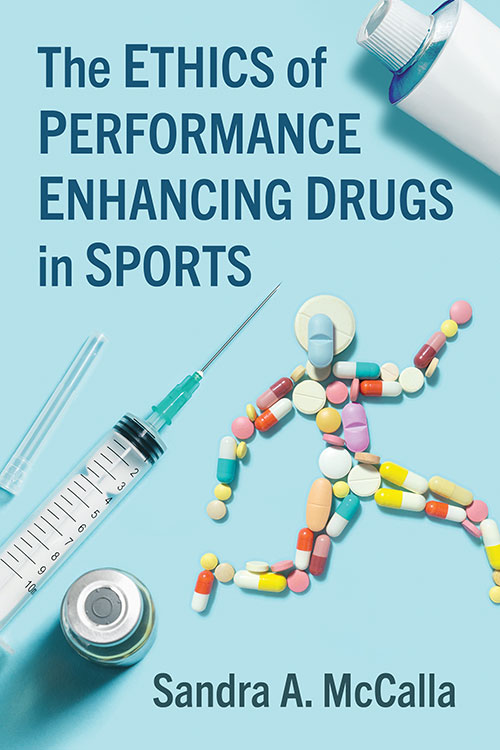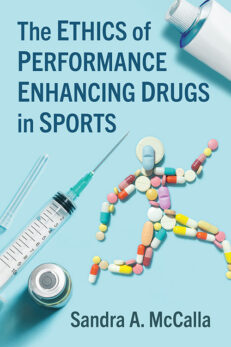Subtotal: $19.99
The Ethics of Performance Enhancing Drugs in Sports
$49.95
In stock
About the Book
It may be a popular opinion that sports and ethics are incongruent or contradictory, but ethical principles in sports are in fact integral for its protection. Because of this invalid popular opinion, a new conversation on ethical principles and issues in sports is warranted. This should start here with a philosophical investigation into the areas of epistemology and autonomy with an effort to address ethical issues associated with the use of performance-enhancement drugs (doping) in sports, fair play, equity, and responsibility.
Readers are introduced to a new theoretical approach to addressing ethical issues in sports. These issues are based on arguments advanced on responsible freedom, perspective knowledge, and duties that can be utilized by sports stakeholders (athletes, team doctors, fans, sporting organizations, coaches, etc.) as they strive for success and minimize unfair practices.
Important questions are posed concerning respect for others, respect for rules, respect for the game, and respect for self. Also, an investigation into ethics and doping is conducted to unravel whether doping athletes impose undue limitations on their freedom. Thus, the idea of absolute freedom is questioned, and “privileged freedom” is explored.
About the Author(s)
Bibliographic Details
Sandra A. McCalla
Format: softcover (6 x 9)
Pages: 209
Bibliographic Info: bibliographies, index
Copyright Date: 2024
pISBN: 978-1-4766-9090-2
eISBN: 978-1-4766-5334-1
Imprint: McFarland
Table of Contents
Preface 1
Introduction 3
1. The Business of Sports 11
1.1 Sports and Games 12
1.2 Sports as Competition 17
1.3 Sports as Business (Careers for Athletes) 28
2. Drugs in Sports 38
2.1 A Brief History of Doping 38
2.2 Substance Use and Abuse 43
2.3 Sports Rules and Testing Methods 50
3. Epistemology or Knowledge Acquisition in Sports 60
3.1 Skepticism and Epistemology 60
3.2 Athletes and Coaches as Knowers 65
3.3 Knowledge Justification in Sports 67
3.4 Perspectival Knowledge 75
4. Fairness and Justice in Competitive Sports 83
4.1 The Principle of Fairness 83
4.2 Fair Sports Rules 87
4.3 Fairness as Duty 94
4.4 Just Punishment 99
5. Revisiting Morality and Ethics in Sports 109
5.1 The Moral Duty 109
5.2 Obeying the Moral Code 121
5.3 Moral/Ethical Dilemmas 125
6. Responsible Freedom 134
6.1 Types of Freedom 134
6.2 The Paradox of Freedom 137
6.3 Athletes’ Right to Freedom 142
6.4 Responsibility—A Marker of Freedom and Self-Duty 153
7. Gender Concerns (Anti-Doping and Gender Rules): The Case of Intersex Female Athletes 163
7.1 Understanding Intersex 165
7.2 History and Justification of Sex Testing 168
7.3 Gender Rules as Discriminatory and Unfair 175
7.4 Unjust Intersection of Sex Test/Verification and Anti-Doping Tests 180
Conclusion 187
Index 193
Book Reviews & Awards
“In her scholarly exploration of sports doping, philosopher McCalla concentrates on ‘respect for others, respect for rules, respect for the game, and respect for self.’ …McCalla offers a sensible analysis of the competing attitudes of win-at-all-costs versus always ensuring a fair playing field.”—Booklist

 The Post–9/11 Video Game
The Post–9/11 Video Game 





